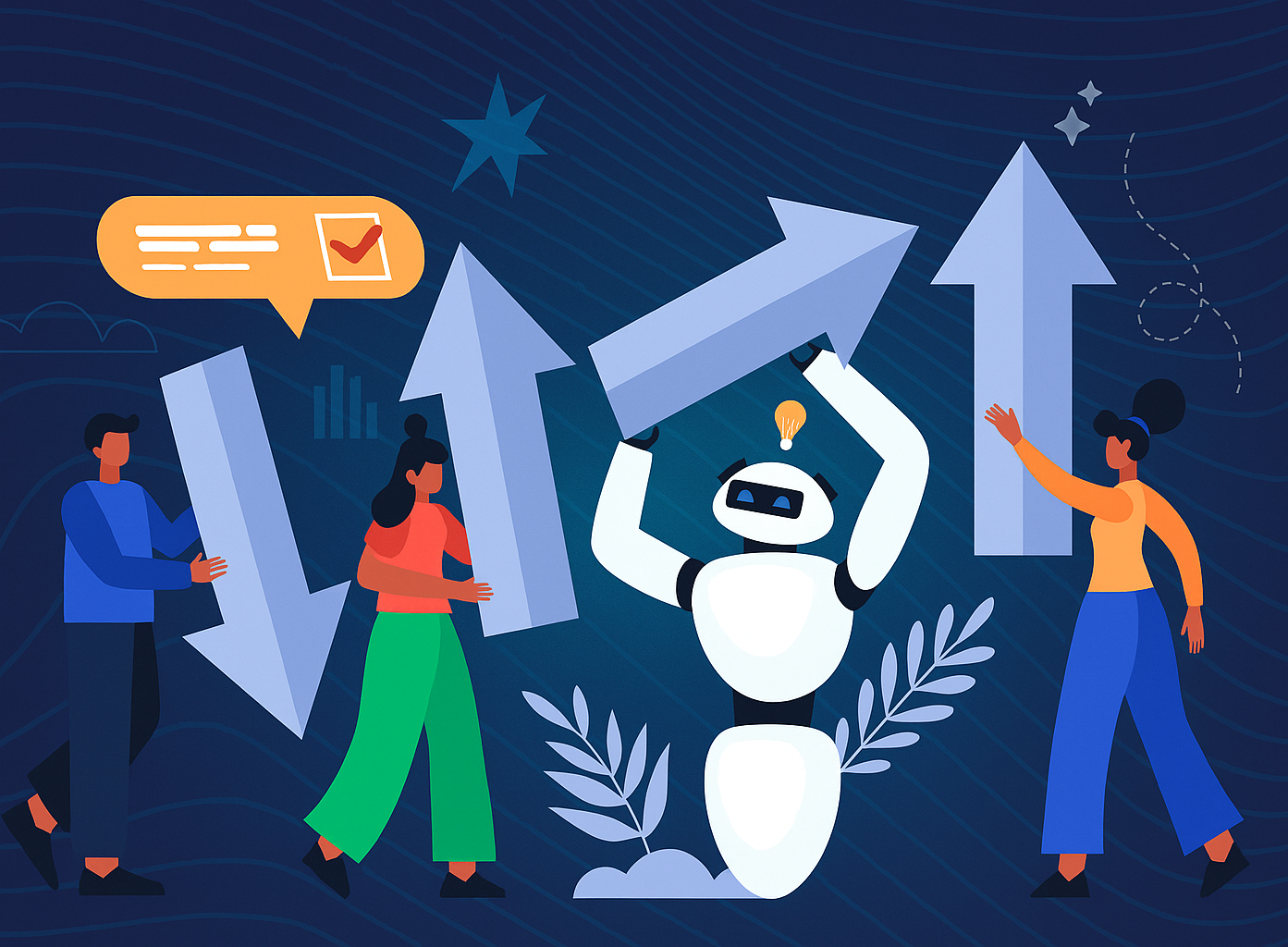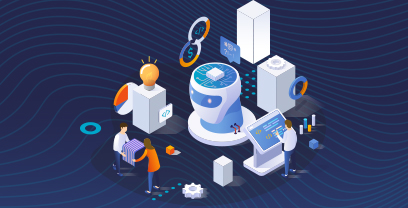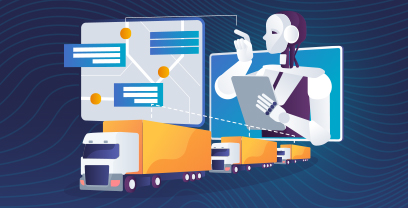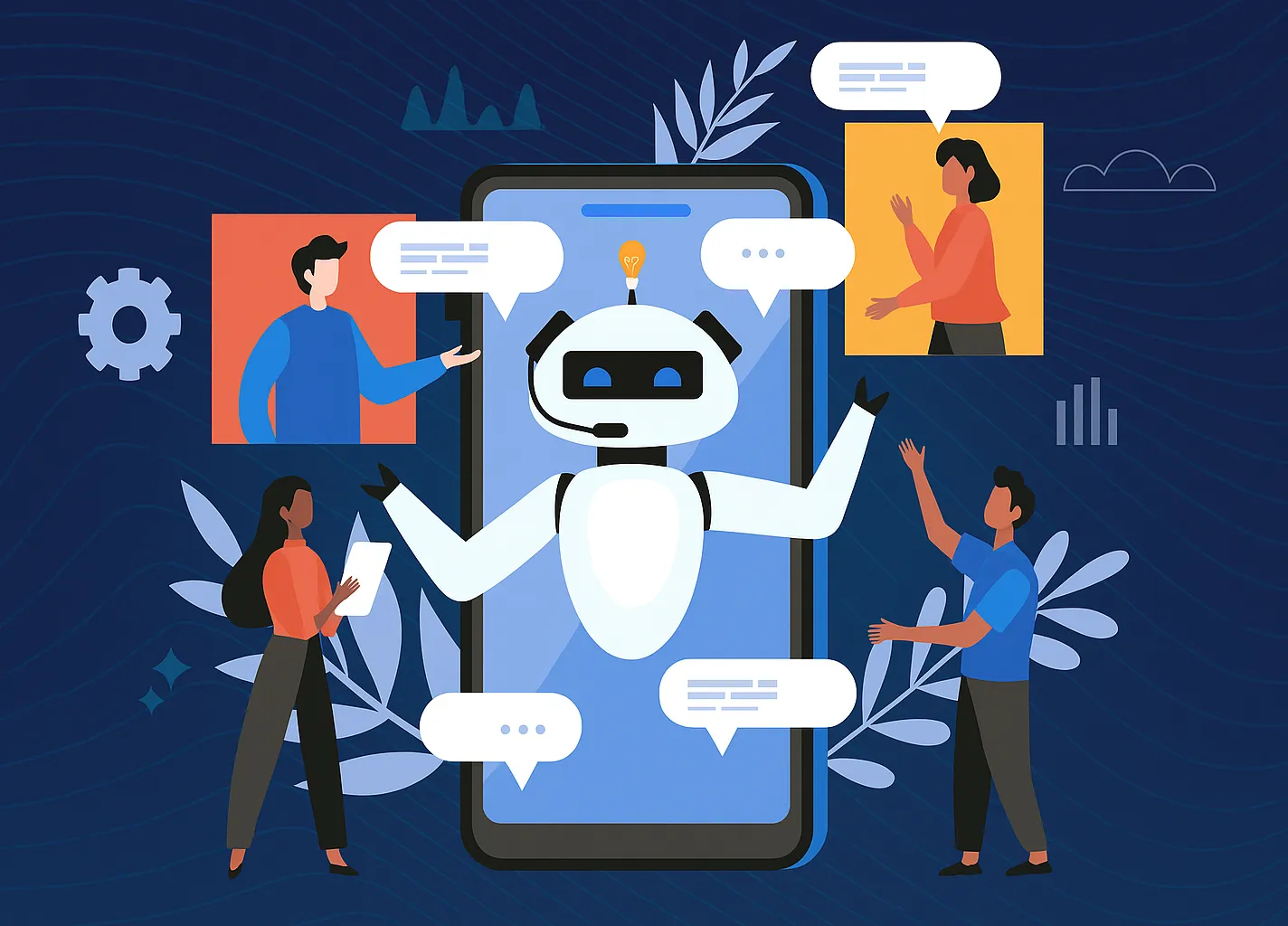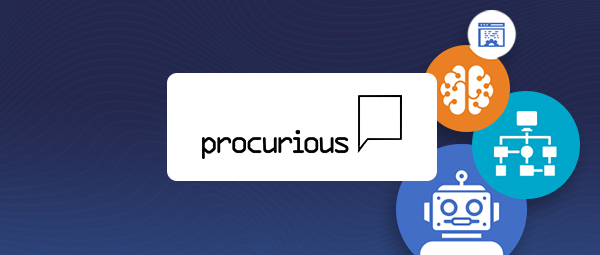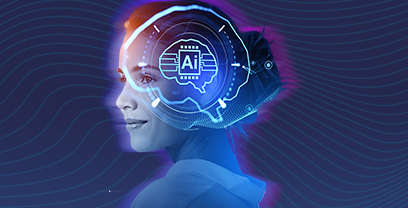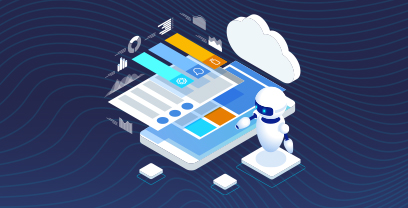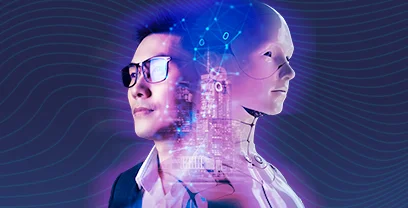AI is reshaping the way organizations source, buy, transact, manage suppliers, and drive value today. As supply chains become more interconnected and risks more dynamic, traditional procurement tools fall short. AI agents offer a smarter, faster way to manage sourcing, risk, and spend across the entire procurement lifecycle.
At Ivalua, we help organizations harness AI to transform procurement from a tactical function into a strategic advantage – and our Intelligent Virtual Assistant (IVA) and our Agentic platform are leading the next wave of AI-driven procurement innovation.
In this blog, you’ll learn what AI agents are, how they differ from traditional procurement software, where they deliver real-world impact, and how to overcome adoption challenges.
What Are AI Agents in Procurement?
An AI agent is software that uses AI to accomplish a goal using multiple pre-determined or AI generated steps. It’s essentially a software program designed to perform tasks autonomously, using AI to understand instructions and make decisions to achieve a desired outcome.
In procurement, AI agents can be in conjunction with sourcing, purchasing, contracting, intelligence gathering, supplier management and much more to streamline operations.
You may also have heard of Agentic AI. If AI agents are individual AI systems designed for specific tasks, then agentic AI is a broader framework that orchestrates multiple AI agents to achieve complex, overarching goals, often with a higher degree of autonomy and real-time decision-making.
For example, agentic AI is what may allow for an autonomous sourcing agent to perform its tasks of selecting suppliers, inviting them, analyzing their bids, checking the quality of their responses, comparing to historical data and ultimately offering a suggestion or even taking it further to making an award and kicking off a contract.
What’s the technology behind an AI agent or an agentic platform? Here’s a quick overview:
- Large Language Models (LLMs): Foundation models trained on massive datasets enable natural language understanding, reasoning, and generation, allowing agents to converse, summarize, and problem-solve.
- Orchestration Frameworks: These manage how agents sequence tasks, call APIs, or interact with tools and users, enabling multi-step workflows or tool use.
- Memory & Context Management: Agents use short-term and long-term memory to retain context across interactions, allowing them to respond coherently and personalize experiences.
- Tool Integration (APIs & Plugins): AI agents often connect to external systems (like ERP, data providers, etc.) via APIs to act on data and perform tasks autonomously.
- Retrieval-Augmented Generation (RAG): Combines real-time data retrieval from knowledge bases with LLM reasoning, enabling grounded, up-to-date responses.
- Autonomy Logic: Built-in decision trees or planning algorithms help agents decide when to act independently, when to escalate, or when to involve a human.
These technologies work in concert to enable AI agent powered procurement, which, in turn, leads to faster, smarter, and more efficient operations.
Many organizations are incorporating autonomous sourcing agents into their procurement processes, so it’s important to understand the differences between AI-powered procurement agents and traditional procurement software.
AI Agents vs Traditional Procurement Software – What’s the Difference?
Traditional procurement software automates specific tasks using predefined rules and workflows. These tools streamline processes such as purchase order creation, supplier onboarding, and invoice management, but they rely heavily on static programming and human oversight.
Simply put, they follow “if-then” logic; they don’t adapt, learn or make procurement decisions that require analysis. On the other hand, AI agents can autonomously or proactively, determine their own path in order to achieve a goal, or can pull in other agents or tools within the platform as well.
As they receive new information, they can adjust their actions to outcomes for things like supplier negotiations, risk management, and spend analysis. And they don’t require constant human intervention.
Businesses are moving and changing at an incredibly rapid pace, and supply chains are becoming increasingly complex. As a result, AI agents are starting to empower procurement teams to be proactive in uncovering opportunities and avoiding disruptions.
Let’s compare: The table below outlines the key differences between traditional procurement software and AI Agents for procurement.
| Traditional Procurement Software | AI Agents in Procurement |
| Automates specific routine tasks based on pre-set rules | Performs tasks autonomously, adapting actions based on context, data and behavior |
| Operates with fixed workflows that require manual configuration and updates | Learns and evolves workflows through interaction, feedback, and data patterns. |
| Limited exception handling — complex cases are routed to humans | Handles exceptions intelligently by analyzing context, offering resolutions, or escalating when necessary |
| Primarily reactive – processes what is inputted | Proactive – monitors data patterns, triggers actions, alerts or optimizations |
| Human intervention needed for optimization and adjustments | Minimal human intervention needed for ongoing improvement and optimization but humans can be added at key decision points |
| Focused on efficiency and consistency | Focused on strategic value, agility, and business outcomes |
Now that we’ve explained the differences between AI agents and typical procurement systems, let’s examine how automation plays a key role in the adoption of AI agents in procurement.
How AI Agents Automate Procurement Activities
AI agents do more than just automate tasks for procurement teams. They serve as a powerful tool, enabling procurement managers to move beyond routine execution and focus on driving strategic business outcomes. This shift empowers teams to create greater value for their organizations. Instead of spending time on manual work like data entry, vendor chasing, and basic reporting, teams can now focus on higher-value activities such as risk management or cost optimization.
AI agents are handling the heavy lifting by analyzing large amounts of data and automating decisioning and other tasks. Plus, they can proactively alert teams to opportunities or potential risks.
Here are some practical examples:
- Supplier Intelligence: AI agents continuously scan supplier data, financial reports, and external news sources or even customers own historical data to detect patterns.
- Intelligent Sourcing Recommendations: AI agents can analyze historical purchasing data, market trends, and supplier performance to generate recommendations for better sourcing options or alternative suppliers.
- Contract Analysis and Compliance: Teams can leverage AI agents with Natural Language Processing (NLP) capabilities to automatically review contracts, flag risks or missed terms, or spot compliance issues.
- Spend Analysis and Optimization: AI agents can continuously analyze spending patterns, identify maverick spending, and suggest consolidation opportunities to maximize savings, increasing accuracy and saving teams from having to manually analyze static reports.
- Automated Vendor Communication: AI-driven bots can be used to manage supplier communications, send RFQs, validate supplier documents, walk through onboarding steps, or follow up with suppliers, freeing up employees for more strategic discussions.
And automation is just the tip of the iceberg – as AI evolves, more will emerge, helping procurement teams work faster, smarter and more efficiently, and delivering more value over time.
Pro Tip
Check out our guide on Powering Procurement Transformation with Autonomous AI Agents to learn more about how AI agents are driving procurement process improvement with automation.
Key Benefits of AI Agents in Procurement
In addition to automation, AI agents deliver significant value across the procurement lifecycle.
For supplier sourcing and evaluation, AI-driven tools tap into historical data, market intelligence, and supplier performance metrics to automatically identify the best-fit partners.
According to Deloitte, organizations using AI for supplier selection can cut sourcing cycles, while advanced scoring models strengthen risk assessments by factoring in financial stability, geopolitical risks, and compliance records.
AI agents also drive real-time cost optimization with predictive analytics that help forecast market trends and recommend smarter purchasing decisions. They can also perform automated contract compliance checks and continuous price benchmarking, and help teams negotiate more effectively.
By continuously monitoring transactions for anomalies like duplicate invoices or inflated orders, AI agents help move from reactive fraud discovery to proactive prevention.
Finally, AI speeds up decision-making and shortens procurement cycles with automated RFQ generation and faster bid evaluations – Agents can also perform negotiation steps with suppliers in real time. McKinsey reports that companies leveraging AI for procurement automation have reduced sourcing cycle times by up to 40%.
For a deeper look into how Generative AI is accelerating procurement transformation, download our whitepaper, “Powering Procurement Transformation with Autonomous AI Agents.”
So, with all of these potential benefits, what kind of AI agent does your team need? The short answer is, it depends. In the next section, we examine five different types of agents to help you decide.
Examples and Use Cases of AI Agents in Procurement
Understanding how AI agents work in the real world procurement settings can empower you to select the right type of agent for your organization’s unique challenges
Need to automate PO creation? AI agents can automatically generate purchase requisitions based on predictive demand forecasting, and match supplies with operational needs. They reduce manual entry errors and cut down on procurement cycle times.
AI-powered Legal Agents in Contract Lifecycle Management can offer redlines based on pre-approved language or previously approved contracts. They can also extract all the key metadata in order to be better informed.
A Supplier Onboarding Agent can autonomously communicate with suppliers via email, ask for an ingest of credentials and documents sent via email, validate those and progress the onboarding of a supplier.
AI agents scan global supply chains, news feeds, and economic data sources to detect emerging trends – for example trade restrictions or regional conflicts – to help teams be more proactive and avoid the fallout of a disruption. These are just some of the many use cases for AI agents in procurement. Check out our blog, “Transforming Procurement with Generative AI: A Practical Approach” to learn more.
Challenges of AI in Procurement
While AI in procurement brings remarkable advantages, driving efficiency, insight, and innovation across the sourcing process–it also presents challenges that procurement managers must address to achieve optimal results and minimize risk.
- Data privacy and security: AI systems often handle sensitive supplier information and transactional data. Ensuring compliance with data privacy regulations like GDPR while maintaining strong cybersecurity practices is critical.
- Integration with legacy procurement systems: Many older platforms lack the compatibility or flexibility needed to work seamlessly with modern AI solutions, making upgrades or custom development necessary.
- The need for human expertise: Procurement still requires skilled specialists to oversee strategic sourcing, complex negotiations, and supplier relationship management.
- High initial implementation costs: The cost of software, integration, and training can be a barrier to AI adoption, particularly for small and mid-sized enterprises (SMEs) that may lack the budget or internal resources to deploy advanced AI-driven procurement systems at scale.
To overcome these challenges and encourage adoption, teams should focus on combining the right technology with strong data governance and a clear strategy for deployment.
Best Practices for Getting Started With AI Agents in Procurement
Successfully adopting AI agents in procurement requires a strategic, phased-in approach. Here are a few best practices to set your organization up for success:
- Start with Clear Objectives: Define specific goals, such as reducing procurement cycle times, improving supplier risk management, or optimizing spend. Clear KPIs help focus AI initiatives and measure real impact.
- Prioritize Data Quality and Governance: AI agents rely on clean, accurate, and comprehensive data. Investing early in strong data management practices ensures better AI outcomes and minimizes risks tied to poor data quality.
- Modernize Your Procurement Infrastructure: Legacy systems often limit AI’s effectiveness. Gradually updating procurement platforms or choosing solutions with strong API interoperability can smooth AI integration without massive overhauls.
- Adopt a Human-in-the-Loop Approach: Keep procurement specialists involved to supervise, refine, and interpret AI-driven decisions. Human oversight ensures AI recommendations align with business strategy and ethical standards.
- Pilot, Learn, and Scale: Begin with a small pilot project to validate AI’s potential in a controlled environment. Use early lessons to fine-tune your approach before expanding AI agents across procurement operations.
Pro Tip
For a deeper dive into building a practical, phased AI adoption roadmap, check out Accelerating Adoption of Generative AI in Procurement.
The Future of Agentic AI in Procurement
AI is here to stay – and its impact in procurement continues to expand. In fact, the global AI in procurement market is projected to reach approximately $22.6 billion by 2033, growing from $1.9 billion in 2023 at a compound annual growth rate (CAGR) of 28.1%.
The next wave of procurement innovation will be driven by agentic AI – those autonomous, self-learning systems that are capable of managing entire end-to-end processes with little to no human intervention. However, critical to have a platform that can place humans in the loop and offer complete transparency as to the agent activities.
But AI agents won’t just support procurement activities – they’ll handle supplier discovery, negotiation, risk assessment, and contract management while continuously learning from outcomes to optimize strategies in real time. This move towards autonomous procurement will help companies to respond faster to market changes while reducing operational costs – it will likely unlock new levels of agility in global supply chains.
Generative AI will also play a major role – with its market size growing at a CAGR of nearly 30% and reaching more than half a billion by 2029. Generative AI will enable teams to do things like simulate sourcing scenarios and recommend negotiation tactics, or even create customized procurement plans.
The figure below projects the evolution of generative AI from simple chatbot experiences to one-click features to more agentic skills with reasoning and autonomous agents, where we are today. All of this has happened over the last 2 years.
For a detailed discussion of this trend, watch our webinar on Generative AI and the Future of Procurement: A Recap.
Unlock Smarter Procurement with Ivalua’s AI-Powered Source-to-Pay Platform
Ivalua is leading the way with AI-powered tools for optimizing workflows across the entire source-to-pay process. Our Intelligent Virtual Assistant (IVA) acts as a real-time AI assistant for procurement teams, streamlining daily tasks and accelerating workflows across the entire source-to-pay lifecycle.
Built on our no-code/low-code Source-to-Pay platform, IVA also empowers teams to design and deploy their own generative AI-powered procurement features and unlock new levels of efficiency, customization, and innovation.
Teams can use it to automatically generate sourcing events, evaluate supplier responses, optimize negotiation strategies, and monitor supplier risks – all while improving compliance and driving greater savings.
IVA further enhances productivity by delivering real-time insights, drafting documents, analyzing contracts, and automating supplier communications. It provides a fully integrated user interface accessible directly within your existing procurement technology.
With IVA, procurement teams gain a practical, embedded tool that simplifies complex tasks, reduces manual effort, and supports more informed, efficient decision-making from source to pay.
Striking the Right Balance Between Human Expertise and Intelligent Automation
AI is transforming procurement from a manual, reactive cost center into a proactive, strategic function. However, while AI delivers powerful automation, human expertise is still essential.
Procurement professionals must continue to provide the critical judgment, strategy, and relationship management skills that AI cannot replicate. That’s why the future of procurement will depend on a partnership between human insight and intelligent automation.
Repeatedly recognized as a leader in the Gartner® Magic Quadrant™ and other analyst reports, Ivalua enables customers to achieve nearly 400% ROI through process automation, enhanced visibility, and the replacement of legacy systems, according to a recent Total Economic Impact™ (TEI) study conducted by Forrester Consulting. The study further found that Ivalua customers reported an average Net Present Value (NPV) of $25.5 million over three years.
Simplify Procurement With Ivalua's AI-Powered Source-to-Pay Platform
Frequently Asked Questions About AI Agents in Procurement
AI agents are intelligent systems that automate and optimize procurement tasks by analyzing data, making decisions, and interacting with other systems with minimal human input.
Unlike rule-based tools, AI agents learn from data, adapt to new inputs, and make proactive recommendations to help teams move from manual processes to smarter, automated workflows.
AI agents can manage supplier sourcing, risk assessment, contract analysis, spend optimization, and even real-time vendor communication, freeing up teams to focus on strategic work.
IVA acts as a real-time AI assistant, helping users automate tasks like content creation, data updates, and contract analysis. It also enables teams to create custom generative AI features through Ivalua’s no-code/low-code platform.


